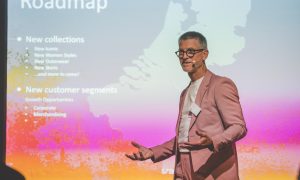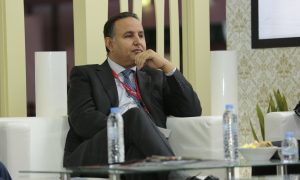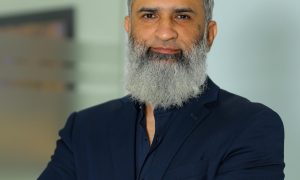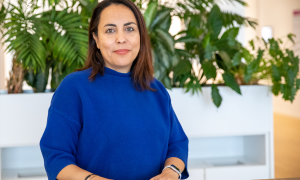Cologne-based hotel operator DHI – Dorint Hospitality & Innovation has remained a visible presence in central Europe for over 60 years. With hospitality one of the industries hardest hit by the coronavirus pandemic, we spoke to CEO Jörg Böckeler to discuss his approach to surviving – and thriving – in difficult times.
Having worked abroad for over 30 years in places as far flung as Australia, Jörg Böckeler returned to Germany in 2018 to take up the position as MD and COO at Dorint GmbH operating as Dorint Hotels and Resorts, before rising to CEO. Alongside appreciating his own personal homecoming, he found himself steering the fortunes of a company steeped in history with proud traditions. However, some serious challenges were afoot.
“Dorint was starting a repositioning process at the time,” Jörg explains. “But for me the opportunity was in moving from a large, public limited company, for which I worked in Australia, to a German, owner-managed, mid-sized company. There was a big difference in culture, which I felt excited about.”
The Dorint brand had existed since 1959 when Werner Dornieden opened a flagship hotel in Mönchengladbach. Deemed by its founder to be a “model house for hotel interior design” it was named the Dornieden International, or Dorint, for short. Surrounded by the peaceful Bunter Park and a short walk from the old town and the medieval Basilica of St. Vitus, the hotel did excellent business for a decade. This enabled the company to spread its wings, meaning several other locations were added from the late 60s onwards, with the first outside Germany opening in the 80s. All Dorint hotels served the upper market segment, were located in newly built, high-quality real estate, and were awarded four or five stars.
A slightly troubled period then followed, as the hotel industry in general struggled during the nineties. A merger with the French Accor group in 2002 steadied the ship and saw Dorint grow to run 37 hotels across Europe. When Jörg joined, the company had de-merged with Accor and was independent again, the aim was to generate further growth, to strengthen the brand, and to re-double Dorint’s reputation for high-end service.
“I came into the job with humility,” he says. “For most of my life I had been abroad, I had been ‘the foreigner,’ but now I was coming home as a global citizen. I think my experiences made me very open to change to cultural differences and to possibilites.”
This was perhaps the most important element of Jörg’s mindset. Having begun at Dorint with a strategy, which he named the “Dorint 2020 strategy” and was shared with the company’s then 3800 employees as the golden ticket for achieving the company’s aims, he soon found himself derailed. Two years of hard work, systematic change, and the implementation of a strategic growth plan were stymied by unfortunate circumstances.
Jörg explains: “We were proud of our work, to that point. We had grown from 37 hotels in 2017 to 64 by 2019 and in order to strengthen the core brand, we decided to go down a path of brand diversification.”
Dorint launched a three-star full-service brand along with a franchise model named ‘Essential by Dorint.’ At the other end of the scale, under Böckeler’s guidance, they launched the luxury five-star ‘Hommage Luxury Hotels Collection’ brand, with four addresses in iconic locations. The idea was a simple but effective, to give Dorint a market presence in sectors beyond that which it had traditionally inhabited. All of this went alongside a remodelling of the core brand, in which a new culture was introduced. Jörg calls it “people culture.”
“It is a 360-degree model of purpose. The key thing, for us, is that only happy employees can create happy guests.”
This culture was formalised on the 60th anniversary of the Dorint group in September 2019, when it was launched into all hotels, resulting in hours and hours of training per employee. Jörg’s vision appeared to be bearing fruit. Both guest and employee satisfaction rose on the company’s metrics and this success was also reflected in profitability, but then in March of 2020, unforeseen disaster struck. The first major COVID wave began to ravage the continent and national lockdowns were imposed across Europe.
“Of course, we had to reorganise and refocus ourselves – we had to ask the question, what is important now?”
This corporate soul searching resulted in a pandemic plan, which did everything it could to mitigate the impact of the pandemic. A large part of this revolved around new hygiene procedures and a flexible approach to room usage. Some rooms were converted into office space, for example. While these measures could not counteract the full economic impact of lockdown, they helped to set a mood. Under Jörg’s guidance, the company refused to give in to negativity. Refurbishment programmes, started before the pandemic hit, were continued.
Jörg explains: “As much as possible, we kept our hotels open. I mean, as far as the law allowed us to, of course. In total we were operating at between three and five percent occupancy, but we stayed open.”
The numbers were savage and persisted throughout Germany’s nine and a half month, two-stage lockdown but the CEO saw an opportunity. It was a small one, but an opportunity, nonetheless.
“Even in lockdown, some travel was permitted,” he says. “Essential travel, for business and so on was still going one. We recognised this and saw that many other hotels were closing altogether. At Dorint, our viewpoint was that even a handful of customers is better than no customers. And this is the approach we took.”
That meant that when the second lockdown ended, Dorint was much faster to prepare for re-opening than many competitors. However, Jörg is quick to point out that the hospitality business still has not returned to “normal,” an indeed may never do so.
“We are all talking about the new normal,” he explains. “We are very popular with individual leisure travel, and we are fortunate that Germans tend to travel and holiday within their own country a lot. This is great for us. However corporate travel has been reduced by about fifty percent. I think a lot of companies have changed the way they operate.”
Despite this, Böckeler is very optimistic about the future. As someone who is used to adapting to new situations and circumstance, he sees Dorint’s post-pandemic story as a new road to travel, rather than a cul-de-sac.
“Of course, we will sharpen up our product offering” he says. “I think our three-star brand and franchise model will experience good growth and our Dorint brand is extremely well known in the German speaking world. Our highly individualised brand standard will hold steady there. Of course, on the other hand, our luxury hotels like the Grand Tyrolia Kitzbühel, Austria, are there to tell a story. Without doubt, they will continue to do that, because what is important throughout all of this, is that we continue to do what we do best – to serve our guests and create moments which in turn create long lasting travel memories.”
Click here to read and download the full article.

















